Allergies: Giving Yourself an Epinephrine Shot
If you have had a severe allergic reaction (anaphylaxis) in the past, you know how frightening it can be. Symptoms of breathing problems, itching, belly pain, nausea or vomiting, diarrhea, and swelling can come on quickly and become life-threatening. Giving yourself an epinephrine medicine can slow down or stop an allergic reaction. That's why it is important to have epinephrine with you at all times and to know the right way to use it. It could save your life someday.
How do you give the shot?
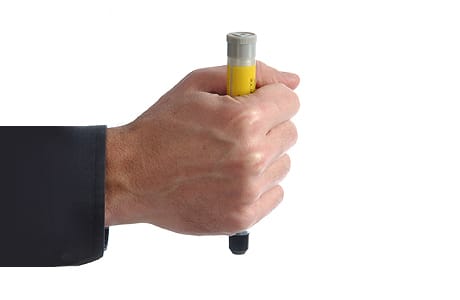
1. Grasp the injector in one fist with the tip pointing down. Follow the instructions for the injector closely. Each one has different steps for use.
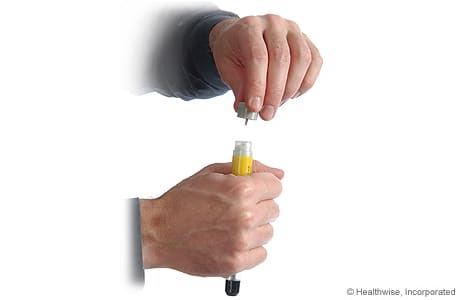
2. Follow the instructions on the label to remove the safety cap.
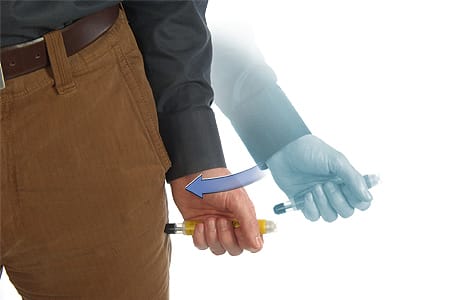
3. Give the injection.
- Hold the tip close to your outer thigh.
- Swing and jab the tip firmly into your outer thigh. Jab through clothing if you must, but bare skin is best. The injector should go straight into your skin, at a 90-degree angle to your thigh.
- Keep the injector in your thigh for 3 to 10 seconds or whatever your instructions say. The injection is then complete.
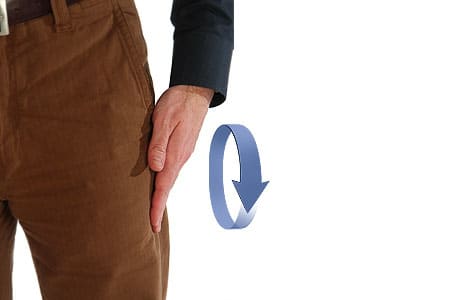
4. Remove the injector and rub the skin area. After removing the injector, place your hand on the area where the medicine entered your skin. Rub the area, using a circular motion, for about 10 seconds.
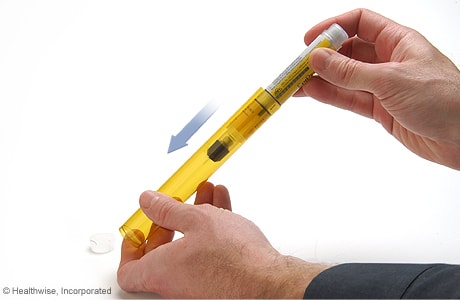
5. Put the used injector—needle-first—back into its storage tube. Some injectors have a protective shield that will cover the needle.
Call 911 or have someone take you to the emergency room, and bring the used injector with you.
What to do next
You should feel the effects of the medicine almost right away. These may include a rapid heartbeat and nervousness as well as improved breathing. The benefits of the shot usually last 10 to 20 minutes.
The shot does not replace the need to be seen by a doctor. After giving yourself a shot, seek emergency care. Symptoms of a severe allergic reaction can return or get worse after an epinephrine shot.
In some severe cases, you may need to give a second shot. Your doctor will explain when a second shot is needed. Make sure you understand, and ask questions if you are not sure.
Credits
Current as of: October 3, 2025
Current as of: October 3, 2025